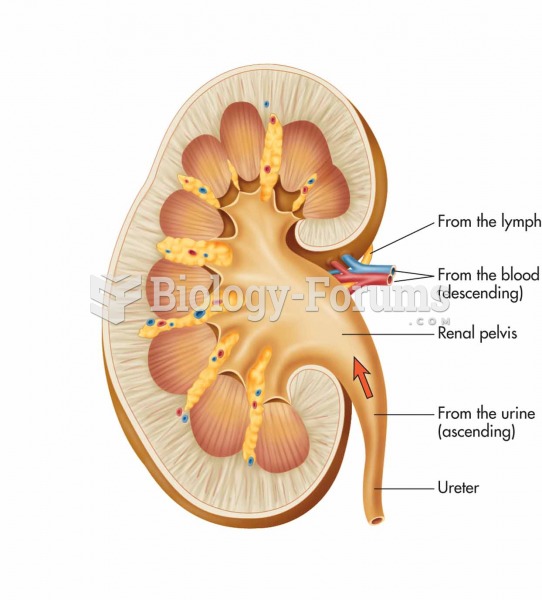|
|
|
There are more bacteria in your mouth than there are people in the world.
More than 34,000 trademarked medication names and more than 10,000 generic medication names are in use in the United States.
Methicillin-resistant Staphylococcus aureus or MRSA was discovered in 1961 in the United Kingdom. It if often referred to as a superbug. MRSA infections cause more deaths in the United States every year than AIDS.
Bacteria have been found alive in a lake buried one half mile under ice in Antarctica.
Acute bronchitis is an inflammation of the breathing tubes (bronchi), which causes increased mucus production and other changes. It is usually caused by bacteria or viruses, can be serious in people who have pulmonary or cardiac diseases, and can lead to pneumonia.








